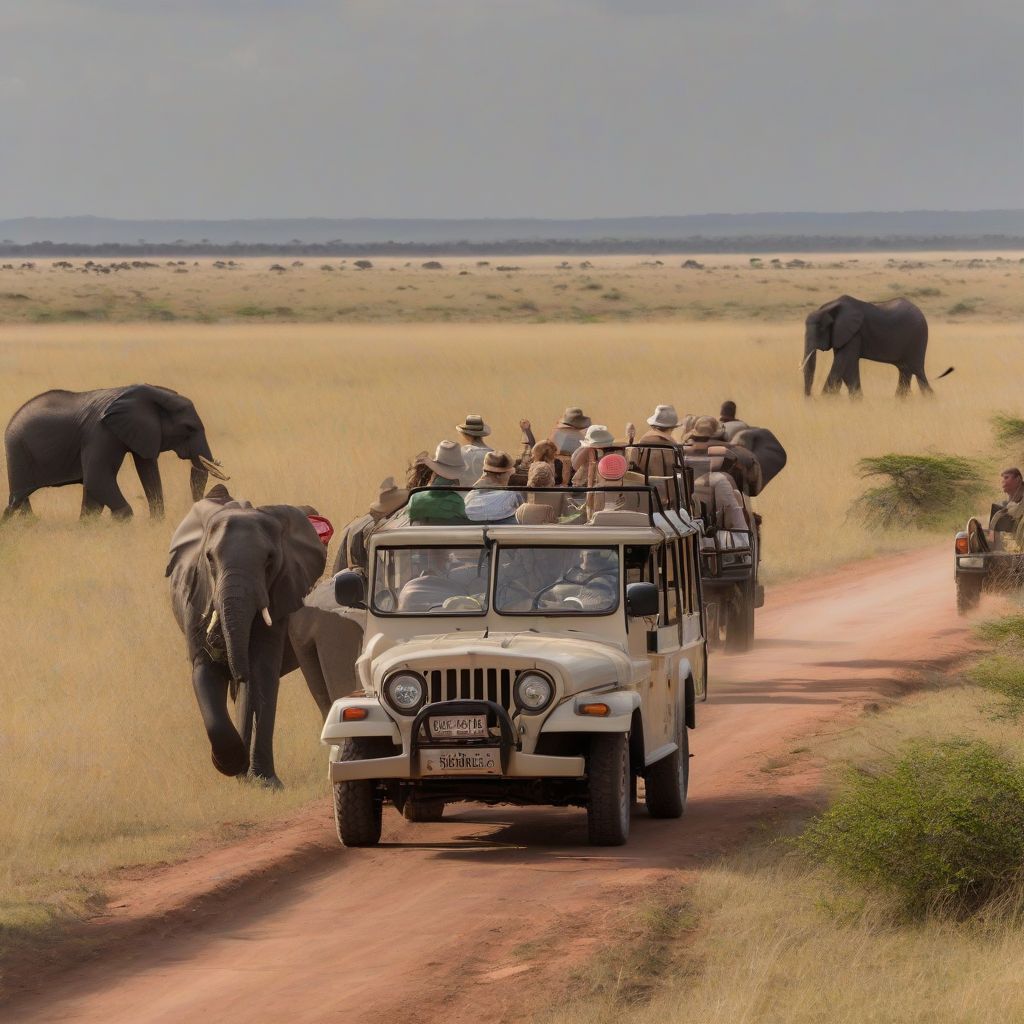Imagine standing amidst a lush rainforest, the air thick with the scent of earth and the sound of exotic birdsong. You spot a family of monkeys swinging through the canopy, their playful chatter echoing through the trees. This is the magic of experiencing wildlife in their natural habitat – a privilege that comes with a responsibility to protect it.
As travelers increasingly seek authentic and sustainable experiences, eco-friendly destinations are gaining popularity. But how can we ensure that our desire to connect with nature doesn’t come at the expense of the very creatures and environments we cherish?
This guide will equip you with practical tips and mindful approaches to experience wildlife responsibly, leaving a positive impact on the planet and its inhabitants.
Choosing Responsible Tour Operators
The first step towards responsible wildlife tourism lies in selecting ethical tour operators. Look for companies that:
- Hold certifications: Seek certifications like World Animal Protection’s Animal Welfare in Tourism or Global Sustainable Tourism Council (GSTC). These certifications indicate a commitment to sustainable practices.
- Prioritize animal welfare: Choose operators that prioritize animal welfare over close encounters or unnatural interactions.
- Support local communities: Opt for companies that employ local guides, contribute to community projects, and respect indigenous cultures.
Respecting Wildlife from a Distance
Getting close to wildlife might seem exciting, but maintaining a respectful distance is crucial for their well-being and your safety:
- Use binoculars and zoom lenses: Capture stunning photos without encroaching on their space.
- Never feed or touch wild animals: Feeding disrupts their natural foraging behaviors and can lead to dependence on humans. Touching can transmit diseases and cause stress.
- Keep noise levels down: Loud noises can frighten animals and disrupt their natural behaviors. Speak softly and avoid sudden movements.
 Observing Wildlife from Afar
Observing Wildlife from Afar
Minimizing Your Environmental Footprint
Every step we take impacts the environment. Here’s how to minimize your footprint while experiencing wildlife:
- Stay on designated paths: Wandering off trails can damage fragile ecosystems and disturb wildlife habitats.
- Pack out everything you pack in: Leave no trace of your presence. Pack reusable water bottles, bags, and food containers.
- Support eco-friendly accommodations: Choose lodgings committed to sustainable practices like energy conservation, water saving, and waste reduction.
Learning from Local Experts
Local guides and communities are invaluable sources of knowledge about the natural world:
- Engage with local guides: They provide insights into animal behavior, conservation efforts, and cultural significance.
- Support local businesses: Purchase handicrafts, stay in locally owned accommodations, and dine at local restaurants to contribute directly to the community.
- Respect local customs: Familiarize yourself with local customs and traditions to ensure respectful interactions.
Advocating for Responsible Wildlife Tourism
Your voice matters. By advocating for responsible wildlife tourism, you contribute to a larger movement:
- Share your experiences: Encourage others to travel responsibly by sharing your positive experiences and tips.
- Support conservation organizations: Donate to or volunteer with organizations working to protect wildlife and their habitats.
- Report irresponsible behavior: If you witness unethical treatment of animals or environmental damage, report it to the appropriate authorities.
Conclusion
Experiencing wildlife in their natural habitat is a privilege that comes with responsibility. By choosing ethical tour operators, respecting animals from a distance, minimizing our environmental impact, learning from local experts, and advocating for responsible practices, we can ensure that future generations inherit a world where both wildlife and humans thrive.
Let’s travel consciously, tread lightly, and preserve the magic of the wild for years to come.
[amazon bestseller=”Eco-Friendly Travel Gear”]
